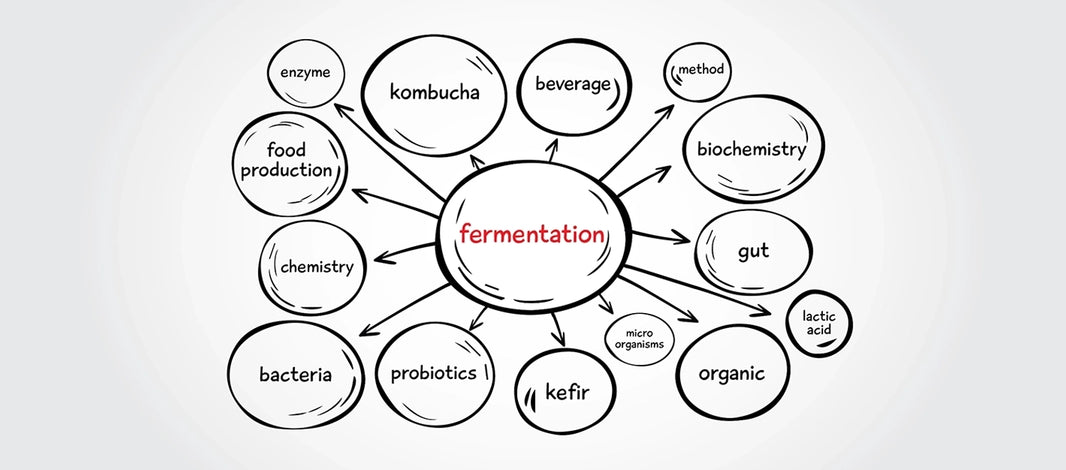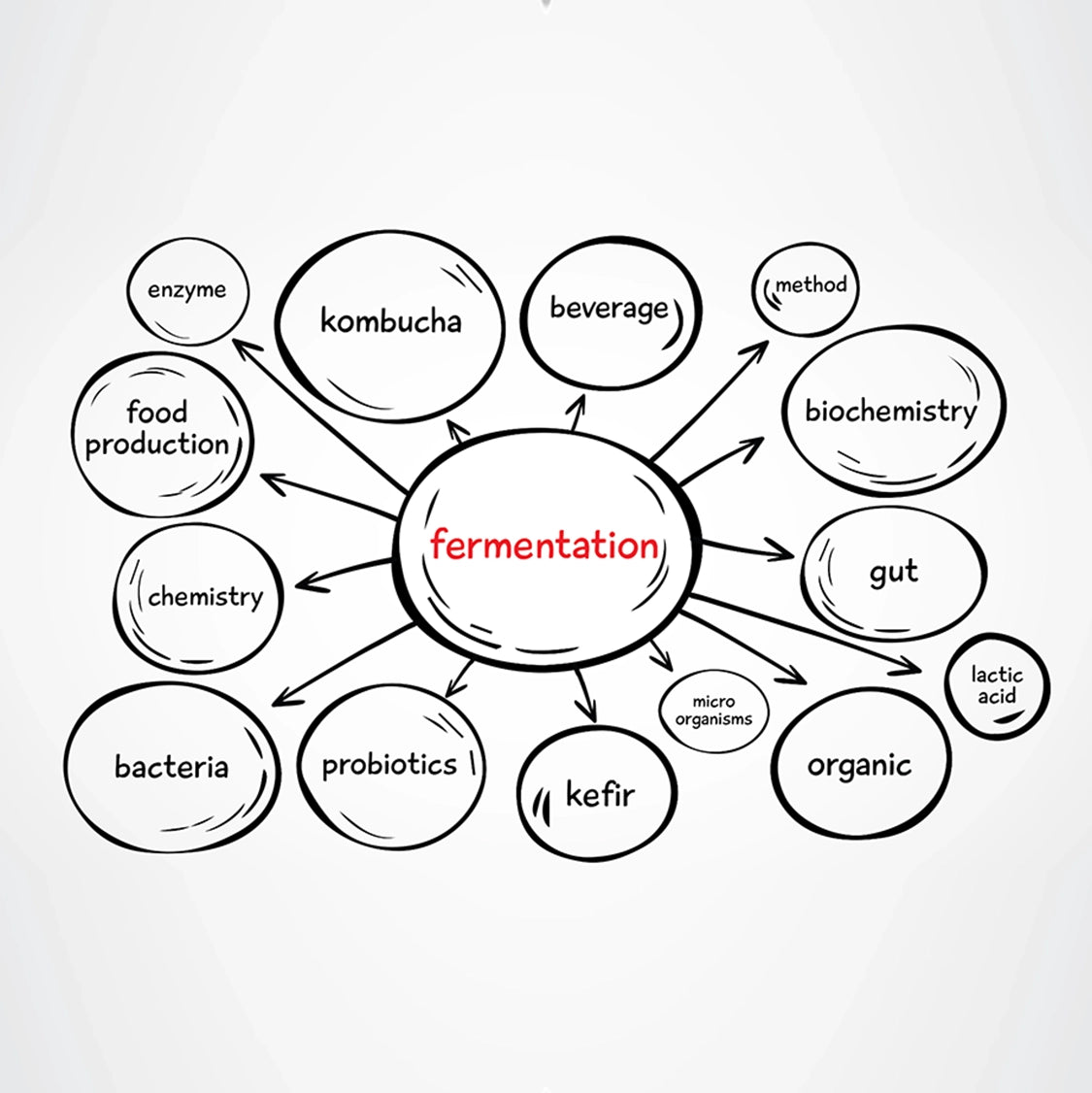WHAT IS FERMENTATION?
Purpose of Fermentation
Why are fermented foods important?
Those of us who live in urban areas have minimal exposure to bacteria due to several reasons, such as our increase in the use of chemicals and antibacterial products, decreasing interaction with nature, and the sterile nature adopted by the modern food system. Despite reducing the spread of harmful pathogens and diseases in many ways, these changes also eliminated the helpful microorganisms from our diets and lives. They inadvertently encourage other types of health problems to occur. One of the best ways to get more beneficial bugs into our bodies is by eating fermented foods. Not only can they amplify the nutritional benefit of food we intake and aid with digestion, but they also increase the number of good bacteria that live in our gut, which improves our immune system.


